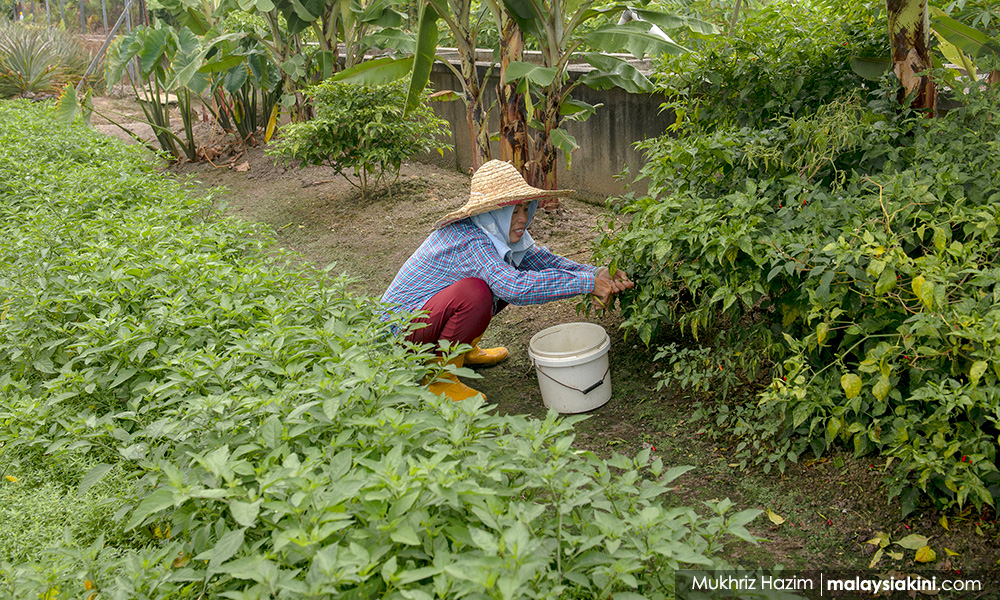LETTER | Waste production worldwide has significantly grown recently, and there are no indicators that it will slow down.
As reported by Statista 2023, global production of municipal solid garbage is anticipated to have grown by nearly 70 percent to 3.4 billion metric tonnes by 2050.
According to the Department of Statistics Malaysia’s (DOSM) compendium of environmental statistics, the planned garbage generated in Malaysia grew by 4.5 percent to 7,505.2 metric tonnes in 2021 from 7,185.2 metric tonnes in 2020.
Due to the shortage of landfill space and the growing cost of disposal, there is an urgent need to address the problem of waste management and lessen its negative effects on the environment and the general welfare of the community.
In the meantime, circularity in the global economy by 2023 went down to 7.2 percent from 9.1 percent in 2018, according to research published earlier this year by Circle Economy.
One of the primary objectives of Malaysia’s goals towards sustainability is the adoption of a circular economy, which aligns with the 12th Malaysia Plan under ‘Theme 3: Advancing Sustainability’.
As stated by Investment, Trade, and Industry Minister Zafrul Abdul Aziz, circular economy practises will be one of the main priority areas under the New Industrial Master Plan 2030 (NIMP2030), which is scheduled to be unveiled by Prime Minister Anwar Ibrahim, to further embrace the transition of the industrial sector towards a net-zero future.
The circular economy is a notion that seeks to increase efficiency by reducing resource use and waste production. The goal is to reduce the use of virgin resources when manufacturing new products and to keep existing products in use for as long as possible.
Addressing environmental waste
By working with communities to co-design initiatives that close resource loops locally, the Circular Community Foundation (CCF) inspires neighbourhoods all over the world to produce numerous forms of value.
Each initiative and process is based on the conviction that communities can work together to achieve wellness.
Apart from that, a social venture called Circular Cities Asia (CCAsia) aims to create a circular community that will promote circular economy innovation throughout Asia.
To address issues with environmental waste, CCAsia instructs young people on how lean innovation and the principles of the circular economy meet while providing them with practical, immersive chances to develop and create circular products and enterprises.
As indicated by a recent Bain & Company survey, 60 percent of active circularity efforts are still in the early stages of scaling.
Thus, at the local level, the circular method must be broadened to include homes, businesses, institutions of higher learning, factories, marketplaces, city halls, community groups, farms, etc.

By adopting a circular economy, communities may live differently from the “take-make-waste” lifestyle, where recycling resources and renovating used items is standard practice.
All materials are reused in a circular economy, so when it is finished, there will be no waste and minimal strain on natural resources.
With only 1.5 years left to meet the 12MP’s target of a 40 percent recycling rate by 2025, Alam Flora Sdn Bhd reaffirms its commitment to environmental goals by including sustainability as a key value throughout all of its offerings and guiding Malaysia’s transition from a linear to a community-based circular economy.
For example, Alam Flora has already put into place effective efforts and educational programmes on trash management and diversion - including its yearly Sustainability Hunt event - while also including ESG features across its value chain.
There is no circular economy if no local manufacturing is taking place. In order for zero waste and circular activities to be successful, it is essential that both the general public and individual people are involved, invested, and aware of the local value and benefits.
In short, practising a circular economy is crucial as it contributes to a number of the 12 Sustainable Development Goals, including SDG6: Clean water and sanitation, SDG7: Affordable and clean energy, SDG12: Responsible consumption and production, as well as SDG15: Life on land.
Author is director of the Ungku Aziz Centre for Development Studies, Universiti Malaya. She may be reached at [email protected].
The views expressed here are those of the author/contributor and do not necessarily represent the views of Malaysiakini.

